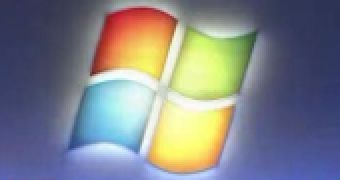The Windows 8 SKU (stock keeping unit) prices will most probably be one of the last details that Microsoft will share with the public, save perhaps for the retail boxes, if the company’s history of Windows releases is to be taken into account. It will certainly be interesting to see the pricing strategy for the next version of Windows, especially in the context of the new rival products from Apple and Google.
When Windows 7’s pricing strategy was still a mystery, I was ready to bet that the Redmond company would ask less money for the new platform, compared to Windows Vista. And I was right, somewhat.
At $119.99 for the upgrade and $199.99 for the full version, Windows 7 Home Premium was indeed cheaper than Vista Home Premium - $159.99 for the upgrade when it launched, and $239.99 for the full OS.
Windows 7 Professional and Ultimate editions featured price tags of $199.99 and $219.99 for the upgrade licenses and $299.99 and $319.99 respectively for the retail variants. In all fairness, Home Premium is THE SKU for end users, and its price is the one that users care most about.
The operating system landscape today is a tad different than it was at the end of 2009, when Windows 7 shipped.
A key change on the platform market is the introduction of Chrome OS, a free and open source operating system from Google.
Microsoft has a long history of successes in the fight against free and open source platforms, with no Linux distro managing to gain traction with consumers, not even Ubuntu, which at a point in time appeared to have had a fighting chance.
I for one have the feeling that things will be different with Chrome OS. It’s not marketed as a Linux distribution, despite its roots, which is a consumer plus as far as I’m concerned, and it has the entire weight of Google behind it. A huge plus – just look at the way the Chrome browser exploded over the past years.
And then there’s the new Mac OS X Apple just announced. Despite of its many touted enhancements, in excess of 250 new features according to the Cupertino-based company, Mac OS X Lion will be available for download from the Mac App Store for just $29.99 in July.
That’s considerable less than the price that users have to pay for a Windows 7 Home Premium upgrade edition. Considerably less.
But then again, Google is a search and online advertising company, it can afford to offer Chrome OS and Android free of charge, because it has never made its money in software.
Similarly, Apple can be considered a hardware company, with the software it develops carrying less weight than the devices it ships on, or for.
Microsoft doesn’t have such luxuries. The software giant sells Windows for a living, literally. To this day, an extremely large portion of its revenues are provided through sales of Windows licenses, and when Windows Division revenues drop, like they did in the past quarter, the reverberations are felt throughout the company.
Still, it will be an excellent move for Microsoft to offer Windows 8 at en inferior price compared to Windows 7. Maybe this time around not only the Home Premium SKU, but all Windows 8 editions.
As always, I’m curious what you think? What’s the price you’d be willing to pay for a Windows 8 license?

 14 DAY TRIAL //
14 DAY TRIAL //